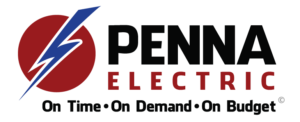Safety Tips For Commercial Wiring
Commercial buildings are full of equipment, electronics, appliances and loaded with lighting, all of which depends on electricity. Not only that, but all this equipment also uses more electricity than any residential property. It’s not the consumption that’s a concern, but the safety, which is why commercial wiring is very important.
Any irregularities in the electrical wiring commercial buildings have can pose great risks, from stopping business operations to accidents to even fires. This is especially important because usually commercial properties employ many workers. To that extent, the Occupational Safety and Health Administration, also known as OSHA, has several recommendations and guidelines when it comes to commercial wiring safety.
Why Commercial Wiring Is Different?
One of the reasons why there are special considerations when it comes to the electrical wiring commercial buildings require is that most of them don’t have the wooden frame, which is generally used to run wire through. Because of this, other wiring methods needs to be used, and here are some options:
- Conduit
The use of conduit is a common method in commercial wiring. These can be made of aluminum, steel, or PVC, depending on the final application. PVC conduit is mainly used for underground conduit runs, or those who are embedded in concrete slabs, due to the fact that it doesn’t corrode or rust. However, PVC conduit has its drawbacks, as it requires special tools to bend and it’s more expensive than other types.
EMT is another type of conduit, made of steel, and it’s a thin-walled metallic conduit. It’s more affordable than PVC and it’s easy to bend. It can be used in wet areas, if special rain tight fittings are used, but it can not be used in buildings with corrosive chemicals.
- Cables
There are commercial properties that also use armored cables, which are also known as teck cables. These are available in almost all sizes. The core of the teck cable contains the desired number and sizes of wires, flexible aluminum armor and protective jacketing. In some cases, they feature a weather-resistant exterior jacket.
The teck cables can be buried directly in the ground, if the cable is rated for direct burial, but they can also be pulled through cable trays, or even through conduit. They can be used in hazardous locations as well, in which case special explosion-proof cable fittings are required together with approved sealing compounds.
The main reason why some commercial properties use teck cables is that they’re versatile and easy to install. When pulled through cable trays, they can be easily accessible, so more can be added or removed anytime.
4 Safety Tips For Commercial Wiring
In addition to the safety requirements of the installation process, there are also considerations to be taken into account with regards to the equipment used, the cords and setup, and more. Here are a few tips and guidelines to ensure a safe electrical wiring in commercial buildings:
1. Keep Appliances in Perfect Condition
From computers and electronics to air conditioning units and refrigerators to big machinery and more, commercial buildings are loaded with appliances and equipment. The more there are, the higher the risk of something going wrong.
To that extent, a regular inspection of the appliances or equipment helps avoid any potential electrical hazards. By inspecting them regularly, you’ll be able to identify any issues, such as faulty electrical wiring, plugs, cords or switches. The sooner you identify faults, the sooner you can replace them. A good tip is also to switch off any equipment or appliance that’s not in regular use.
2. Use Electrical Cords Carefully
Electrical cords always require extra care, as in many cases they are the cause of accidents. Avoid positioning cords anywhere where they are exposed. The best places to position them are around the walls, and in areas where there’s no foot traffic. If you need to place cords outdoors, these need to have weather protection.
3. Pay Special Attention to Lighting
Light bulbs can also pose electrical risks in terms of commercial wiring, especially considering that commercial buildings require complex lighting systems. Regardless of what system your commercial building uses, it’s a good safety practice to check and inspect your lights, as a faulty bulb can lead to electrocution, as well as other hazards.
4. Properly Maintain Equipment
Employees in commercial properties use their devices and the equipment on a daily basis and at higher rates. The use of electricity is higher and therefore it’s more important than ever to make sure employees utilize the equipment in the right way. It’s equally important that the equipment is properly maintained, in order to reduce the risk of fault, accidents, and even fire.
There are several steps you can take to increase safety measures:
- have qualified electricians regularly inspect electrical plugs and cords;
- have professionals regularly service electrical equipment, such as computers;
- train all employees on how to properly unplug electrical equipment;
- don’t use extension cords unless it’s temporary;
- do not staple or nail down extension cords.
A Simple Electrical Upgrade Can Upgrade Your Quality of Life
The right electrical upgrade can dramatically improve the value and appearance of any home or business. You’ll be amazed at what a difference the right electrical upgrade can make for your home or business. Make sure that when you select an electrical company to do the enhancement of your home and you have decided to take your enhancement to the level where you require an electrical upgrade that the technician at the company has a good working knowledge and the experience to properly guide you in this area.
When you decide to upgrade, our well-trained and certified electricians have all the experience and training needed to complete your electrical panel upgrade project from start to finish, with a minimum of fuss or disturbance. Please contact us right away at 310-800-2401





